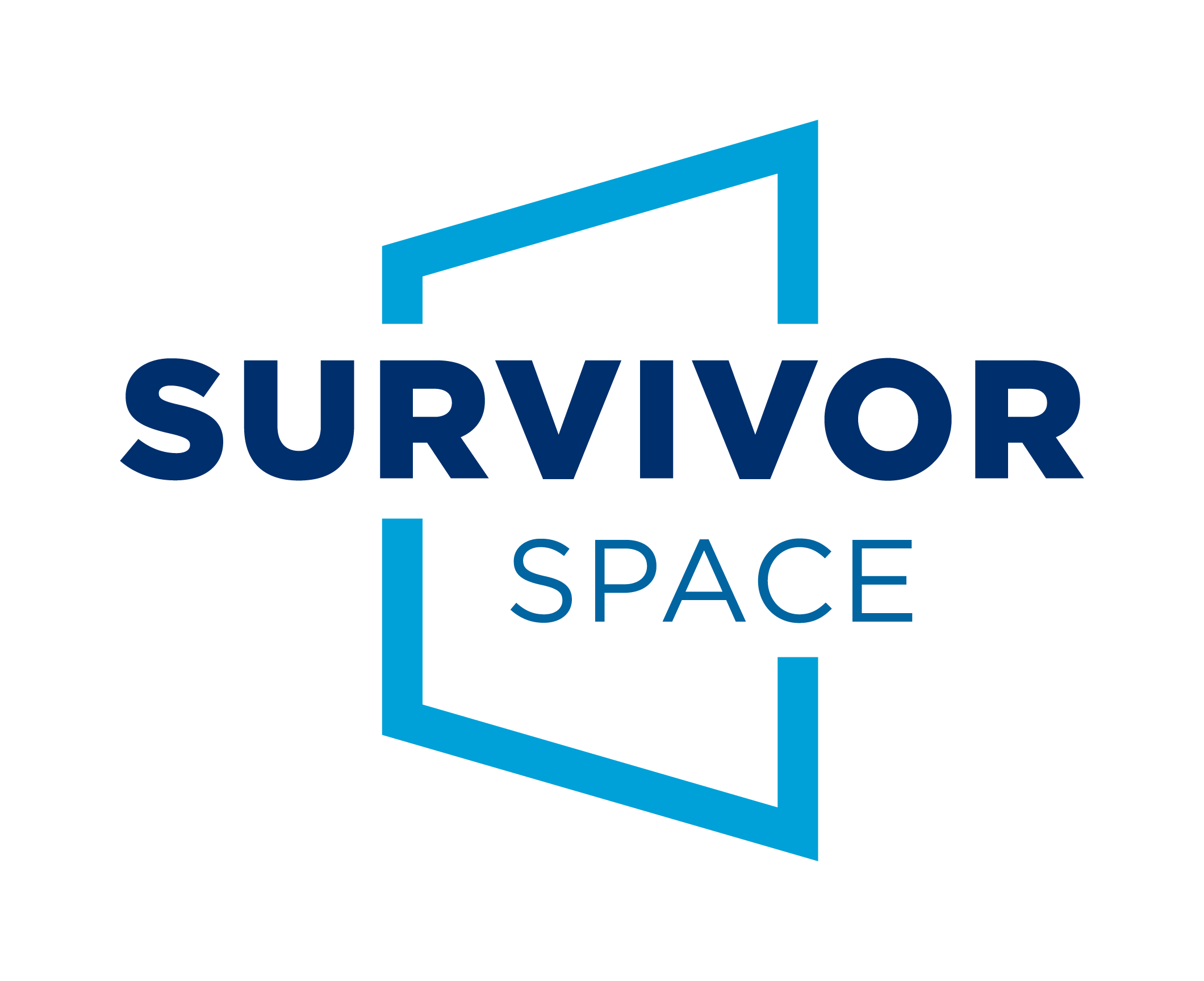Procrastination:
A Silent Battle for Survivors

In the quiet corners of our minds, where shadows linger and pain still echoes, lies an everyday yet often overlooked companion of survivors of sexual abuse: procrastination. This seemingly mundane habit is far more than an annoyance but a silent yet powerful trauma response that can shape the daily lives of those who have endured the unthinkable. Procrastination can be an intricate, deeply rooted reaction to sexual abuse.
A Deceptive Disposition
Procrastination often carries the stigma of laziness or lack of discipline, leaving those who experience it feeling guilty and frustrated with themselves. But for survivors of sexual abuse, procrastination can be a lifeline—a way to navigate a world that has, at one point or another, been an unforgiving and terrifying place. To comprehend this coping mechanism, we must first peel back the trauma's layers and their impact on the human psyche.
Surviving Sexual Abuse: A Lifelong Battle
Survivors of sexual abuse face a lifetime of challenges. The scars left by these traumatic experiences can be both emotional and physical, manifesting in a range of symptoms, including anxiety, depression, and post-traumatic stress disorder (PTSD). The persistent sense of vulnerability and mistrust, boundaries forever altered by the violence endured, often plague survivors.
While every survivor's journey is unique, common threads may connect them. Many grapple with a sense of powerlessness—a feeling that external forces control their lives. This emotional burden is at the core of procrastination as a trauma response.
The Procrastination-Protection Connection
At first glance, procrastination may seem unrelated to the harrowing experience of sexual abuse. However, beneath the surface, it often serves as a survival strategy—an effort to maintain a semblance of control in a world that once was a battlefield.


Photo by Nubelson Fernandes on Unsplash
Photo by Nubelson Fernandes on Unsplash
Avoidance of Painful Triggers
For survivors, specific tasks or responsibilities can be triggering, eliciting distressing memories or emotions associated with the trauma they endured. Procrastination becomes a way to avoid these triggers, a means of self-preservation. In the short term, it relieves the anxiety or pain these tasks may evoke. Survivors might unconsciously put off work assignments, bills, or doctor's appointments to dodge these uncomfortable reminders, which leaves the survivors frustrated and confused as to why they cannot fulfill their obligations, deadlines, or appointments.
Perfectionism and Fear of Failure
Many survivors relentlessly desire perfectionism as a defense mechanism against further harm. They fear any mistake will lead to blame or criticism, perpetuating the guilt and shame they carry from the abuse. Procrastination, in this context, becomes a way to prevent any potential failure. By delaying tasks, survivors can convince themselves they haven't failed—they've run out of time.
Difficulty with Time Perception
Trauma can distort a person's perception of time, leading to an inability to plan and organize effectively. Survivors often struggle with constantly feeling overwhelmed or stuck in the past, making it challenging to manage their responsibilities. Procrastination provides a temporary escape from this disorienting state.
Unmasking the Perpetual Battle
Understanding procrastination as a trauma response does not prevent survivors from addressing and managing it. Recognizing the connection between trauma and procrastination is the first step toward healing and transformation.
Seek Professional Help
Therapy, particularly trauma-focused therapy, can be crucial in overcoming procrastination as a trauma response. A skilled therapist can help survivors identify the root causes of their procrastination and provide tools to address these issues effectively. Cognitive Behavioral Therapy (CBT), Eye Movement Desensitization and Reprocessing (EMDR), and Dialectical Behavior Therapy (DBT) are among the therapeutic approaches that have shown promise in treating the impact of trauma.
Some survivors need other forms of therapy away from the traditional pathway. Some have found huge advantages with animal therapy, life coaches, art therapy, and writing therapy. Julia Cameron's book, The Artist's Way: A Spiritual Path to Higher Creativity, has helped many people break through blocks and eliminate procrastination.
My most effective approach has been the Self-Talk Institute and working with a certified coach. Dr. Shad Helmstetter, behavior researcher and author of What to Say When You Talk to Yourself and the recent The Power of Neuroplasticity, has focused on the role of self-talk as a primary programming source that directs one’s life path and personal effectiveness. Listening daily to the Self-Talk Plus App has helped me see how my negative thinking affects my life choices. This process also has helped me with Active Goal Setting, in which I can achieve my dreams and to celebrate the small and large goals.


Photo by Rowell Heria on Unsplash
Photo by Rowell Heria on Unsplash
Establish a Safe and Supportive Environment
Creating a safe and supportive environment is essential for healing. Survivors should seek out trusted friends, family members, or support groups who can provide a caring and non-judgmental space to share their experiences and emotions. Establishing a network of understanding individuals can significantly aid in the journey towards recovery.
Self-Compassion and Self-Care
Self-compassion is a fundamental part of healing from trauma. Survivors should learn to treat themselves with the kindness and understanding they would offer a dear friend. Self-care practices, such as mindfulness, meditation, and grounding techniques, can help survivors manage their emotions and respond to the triggers that fuel procrastination more healthily.
Merl Yost provides a powerful program entitled Seven Steps to Powerful Boundaries with valuable exercises and tools to help ground oneself and develop healthy boundaries.
Embrace Imperfection
Letting go of perfectionism is a transformative process. Survivors need to remind themselves that it's okay to make mistakes and that these errors do not define their worth. Accepting that perfection is unattainable is liberating and can release the grip that procrastination has on their lives.
The path to healing and recovery for survivors of sexual abuse is often challenging and marked by many hurdles. While procrastination may be one of the more subtle and insidious trauma responses, understanding its connection to the trauma and acknowledging its impact is vital to the journey toward empowerment and self-acceptance.
As survivors engage in this transformative process, it's essential to recognize that recovery is not a linear journey. There will be setbacks and moments of frustration, but every step toward healing is a testament to their strength. In the struggle against procrastination, survivors can find profound meaning in their journey as they learn to confront the trauma they endured and reclaim their lives.
The Power of Resilience
Survivors of sexual abuse are often defined by their remarkable resilience. Numerous challenges may mark the journey toward recovery but are filled with personal growth, empowerment, and self-discovery moments. As survivors gradually shift their perspective and gain a deeper understanding of the connection between procrastination and trauma, they realize that their procrastination is not a weakness, but a response born from necessity.
The transformation on the path to healing is nothing short of inspiring. Survivors learn to confront the past, allowing them to release the grip of the trauma that led to their procrastination. They rediscover their inner strength and power by breaking free through professional help, support networks, and self-compassion.
Procrastination as a trauma response can suffocate, preventing survivors from living their lives to the fullest. Breaking free from these shackles is a powerful and liberating experience that is possible for every survivor.
Seven ways to address and alleviate procrastination:
Self-Acceptance
Accepting that procrastination is a trauma response is the first step towards self-acceptance. It means recognizing that the survivor has already endured a significant ordeal and that they used this response to protect themselves.
Seek Support
Whether through professional therapy, support groups, or trusted friends and family, reaching out for support is essential. Survivors should not bear this burden alone, and connecting with others who understand their experience can be incredibly validating and comforting.
Mindfulness and Self-Compassion
Practicing mindfulness can help survivors stay grounded in the present moment and manage their emotions more effectively. Self-compassion is a crucial component of self-forgiveness and healing. Survivors should be gentle with themselves, acknowledging that recovery is a process that may involve setbacks.
Setting Realistic Goals
Survivors can gradually build a healthier relationship with productivity by setting realistic and achievable goals. By breaking down tasks into smaller, manageable steps, they can avoid feeling overwhelmed and triggering procrastination.
Embrace Imperfection
Learning that it's okay to make mistakes is a fundamental aspect of healing. Survivors should understand that their productivity or perfection does not determine their worth.
Celebrate Progress
Celebrating even small steps forward is essential. No matter how minor, every accomplishment is a victory on the journey to recovery. Survivors should be proud of their resilience and effort to overcome procrastination.
Self-Advocacy
As survivors heal, they should also learn to assert their needs and boundaries. Proactively communicating with employers, educators, or anyone who may affect their responsibilities can help create a more understanding and supportive environment.

Procrastination is not merely a character flaw or a lack of discipline—it can be a profoundly ingrained trauma response for survivors of sexual abuse. Recognizing this link is the first step toward understanding and managing procrastination's challenges. Survivors should never blame themselves for this coping mechanism; instead, they should seek help and support to heal and grow.
Surviving sexual abuse is a journey of courage, resilience, and strength. It's a journey that sometimes demands survivors to confront the brutal truth that their procrastination is a part of their survival story. But by recognizing the connection between trauma and procrastination and seeking the necessary help and support, survivors can reclaim their lives, rewrite their narratives, and take steps towards a future free from the chains of their past. In doing so, they discover that their resilience and bravery are far more potent than the hold procrastination once had on them.
Procrastination as a trauma response is a powerful and often overlooked aspect of the journey to healing for survivors of sexual abuse. While it can be a significant challenge, understanding this connection is the first step toward addressing the root causes of procrastination and ultimately reclaiming one's life.
Recovery is a deeply personal and transformative journey that requires strength, resilience, and support. It is a testament to the survivor's capacity for growth and healing. Survivors should be encouraged to seek therapy, build a support network, and practice self-compassion as they confront and overcome procrastination as a trauma response.
By taking these steps, survivors can embark on a path toward self-acceptance and empowerment. As they break free from the shackles of procrastination, they discover that their strength and resilience are far more potent than the hold that trauma once had on their lives. The healing journey is an inspiring testament to the power of the human spirit as survivors learn to live their lives on their terms, free from the burdens of their past.


About the Author:
John-Michael Lander is a Survivor, Advocate & Public Speaker
He is also the founder of An Athlete's Silence: www.anathletessilence.com

Published by SurvivorSpace, an initiative of Zero Abuse Project
